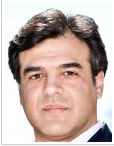A partner in the Washington DC office of the international law firm of Akin Gump Strauss Hauer & Feld was arrested recently and charged with multiple felony violations for obstruction of justice and transporting stolen property. Sounds like no big deal. But it's a very big deal. And it sets whistleblowers at the Justice Department back incalculably.
(Please note: Akin Gump represented me in my criminal case after I was arrested for blowing the whistle on the CIA's torture program. I received first-class legal representation from the firm, I recommend it routinely, and I have had only positive experiences with Akin Gump, its partners, and its employees.)
Attorney Jeffrey Wertkin had been a hotshot prosecutor in the Justice Department's corporate fraud division. He was highly thought of by his supervisors and peers and, after six years at Justice, he decided to move to the private sector. Akin Gump, aware of his excellent reputation as a prosecutor, and as an adjunct professor of law at Georgetown University, hired him immediately to work on the other side of the table to defend those accused of committing corporate fraud. Wertkin was a young partner -- only 41 years old -- and he wanted to impress his new colleagues.
So before leaving the Justice Department, he began stealing sealed corporate fraud lawsuits brought by whistleblowers. He then sent a redacted copy of the first page of the lawsuits to the defendants, offering to represent them. Just one of those lawsuits brought $310,000 into the firm, according to the Washington Post, and Wertkin had stolen dozens.
Wertkin had certainly impressed his partners, and he continued to bring in fraud defense clients until being arrested by the FBI in a hotel lobby in California. He was wearing a wig and a false mustache, and he was on his way to pick up an envelope of cash, apparently a "good faith" bribe for initially telling a potential client that he did indeed have the goods they wanted. Wertkin's only comment upon his arrest was "My life is over." His sentencing is scheduled for March.
An attorney who worked with a whistleblower in one of Wertkin's fraud cases said Wertkin may have done "irreparable harm" by scaring off future whistleblowers. The attorney said, "Every time a potential whistleblower hesitates to bring fraud to the government's attention, the taxpayers suffer a potential loss, often in the hundreds of millions of dollars."
To make matters worse, whistleblowers at the Department of Justice already are treated as second-class citizens and are often even denied their basic rights under the federal Whistleblower Protection Act.
FBI whistleblower Darin Jones has suffered for years under both the Obama and Trump administrations. Jones was fired after he blew the whistle on waste, fraud, abuse, and illegality at the FBI. He had reported that senior FBI officials had wasted $234,000 of the taxpayers' money on an awards ceremony for themselves, they had improperly spent taxpayer money without going through proper approval channels, and that a former FBI assistant director had had a conflict of interest related to a computer help-desk contract.
Jones did exactly what an employee is supposed to do in such a case: he went through his chain of command. In response, he was fired on the last day of his probationary period. That was more than five years ago, and his appeal of his dismissal still hasn't been heard. And just like with other whistleblowers, especially those in national security and law enforcement, it has been virtually impossible for him to find a job. Former friends and colleagues still avoid him.
Jones has been dogged in his own defense, however. He has sought -- and received -- the support of Senator Chuck Grassley (R-Iowa), the chairman of the Senate Judiciary Committee and probably the single biggest supporter of whistleblowers in Congress. Senator Chris Van Hollen (D-MD) also has been supportive.
With that said, Justice Department officials have continued to ignore the senators' entreaties to fix the situation and to return Jones to employment. The Department has buried Jones in paperwork, has forced him down dead ends on appeals, and has dragged out his case in the hope that he'll just eventually go away. He vows to fight to the end.
Whistleblowers don't live and act in a bubble. They see what happens around them. They read the internal memos that circulate in every federal department and agency urging employees to report evidence of waste, fraud, abuse, or illegality. And then they see the response: personal, professional, and financial ruin. All for doing the right thing.
Jeffrey Wertkin's criminal acts made everything that much worse. There must be consequences to his actions.
Reader Supported News is the Publication of Origin for this work. Permission to republish is freely granted with credit and a link back to Reader Supported News.





